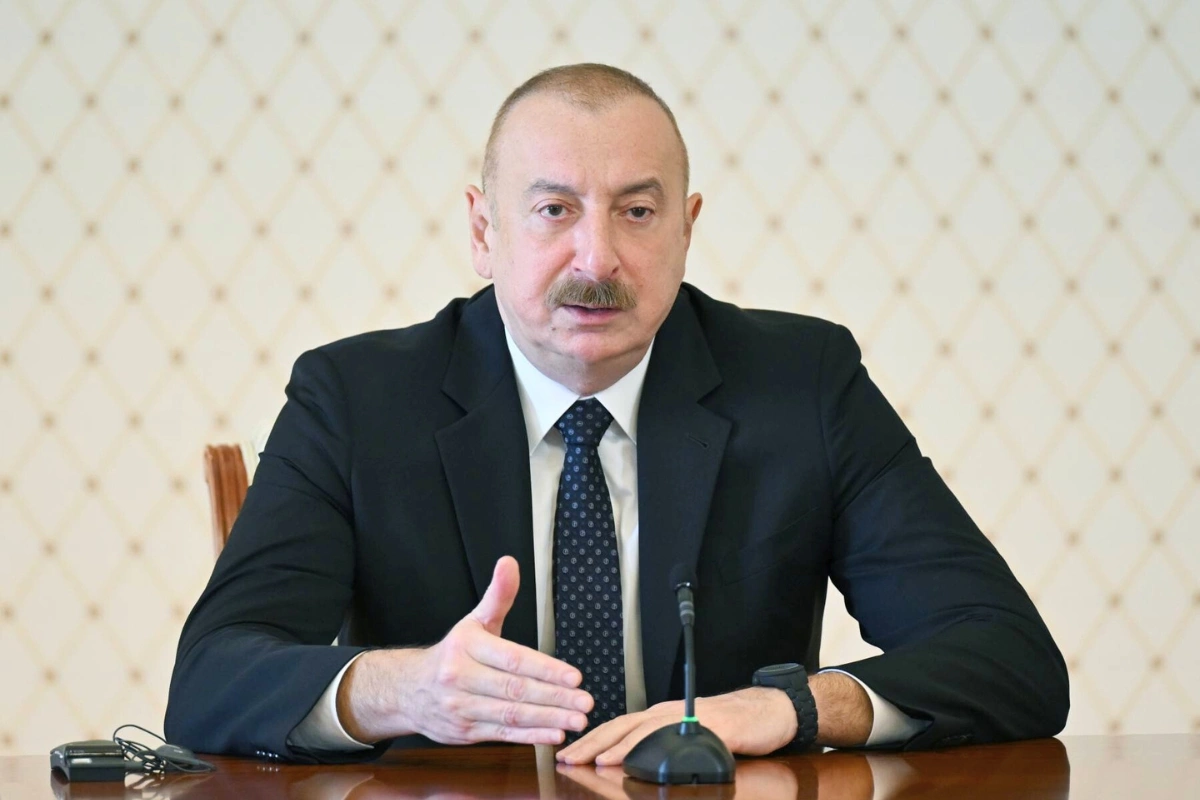
Recent weeks have seen some hopeful signs of diplomatic work that is quietly edging the South Caucasus closer to lasting peace. However, some key pitfalls remain as Aliyev told TURKPA yesterday.
Image: president.az
June 6th saw the plenary session of TURKPA (the Parliamentary Assembly of Turkic States), an international grouping comprising Azerbaijan, Kazakhstan, Kyrgyzstan, and Türkiye along with other observer nations. Established in 2008, the group’s latest meeting—the 13th—is being held in Baku, and perhaps the most interesting aspect so far has been the speech given by Azerbaijani President Ilham Aliyev, in which he sets out some of the realities and remaining pitfalls that lie in the way of settling a lasting peace treaty between Azerbaijan and Armenia.
The context, of course, is centred on Karabakh, where Azerbaijan has regained its occupied territories, but the rebuilding task remains immense, and almost the entire Armenian population left en masse in 2024, afraid of living under Azerbaijani control. The issue of these refugees’ future remains a hot topic in Yerevan, which led to some heated debates in the parliament earlier this week. A Dashnak (nationalist) MP demanded to know about plans for the refugees’ return, leading Foreign Minister Ararat Mirzoyan to ask whether he was in fact trying to incite war. Baku claims to offer a safe return to this population, but as of yet, it has not offered international guarantees robust enough to give former residents the reassurance to return. In part, that is due to what it sees as Armenian anti-Azerbaijani attitudes, which need to be dealt with at a constitutional level.
At the TURKPA meeting Aliyev underlined:
"We have never had any territorial claims against any country, including Armenia, and we do not have any. They had territorial claims against us. It is in the declaration of independence, which was later included in their constitution, that there are territorial claims against Azerbaijan. It is in their ideology, politics and public discourse that territorial claims against Turkey are continuously heard."
Obviously, the speech played importantly to its Turkic audience, but the key message was the reminder that the constitution of Armenia actually enshrines the long-term goal of unification with areas of Karabakh that had been the NKAO (Nagorno Karabakh Autonomous Oblast) in the Soviet era.
In fact, the same point was made by Aliyev in February at an IPU meeting, and also back in February, the Pashinyan government started exploratory talks on changing the Armenian constitution to solve this problem. The process is likely to be slow and difficult to navigate against vociferous opposition. Aliyev went further in his recent speech, saying that Armenian society “is being poisoned by nationalists and war criminals,” and certainly some powerful diaspora groups are also a further factor in putting the brakes on movement towards a full peace settlement. However, as Aliyev clearly set out, “from a purely practical point of view,” it is in Armenia’s best interests to drop any territorial claims as soon as possible: “after the events of 2020 and 2023” he said “making territorial claims against Azerbaijan is generally close to suicide. That's why they should change their ideology, mood in society." Essentially, the message was a reminder that, without a suitable change in Armenia’s constitution, lasting peace is simply not possible.
Share on social media